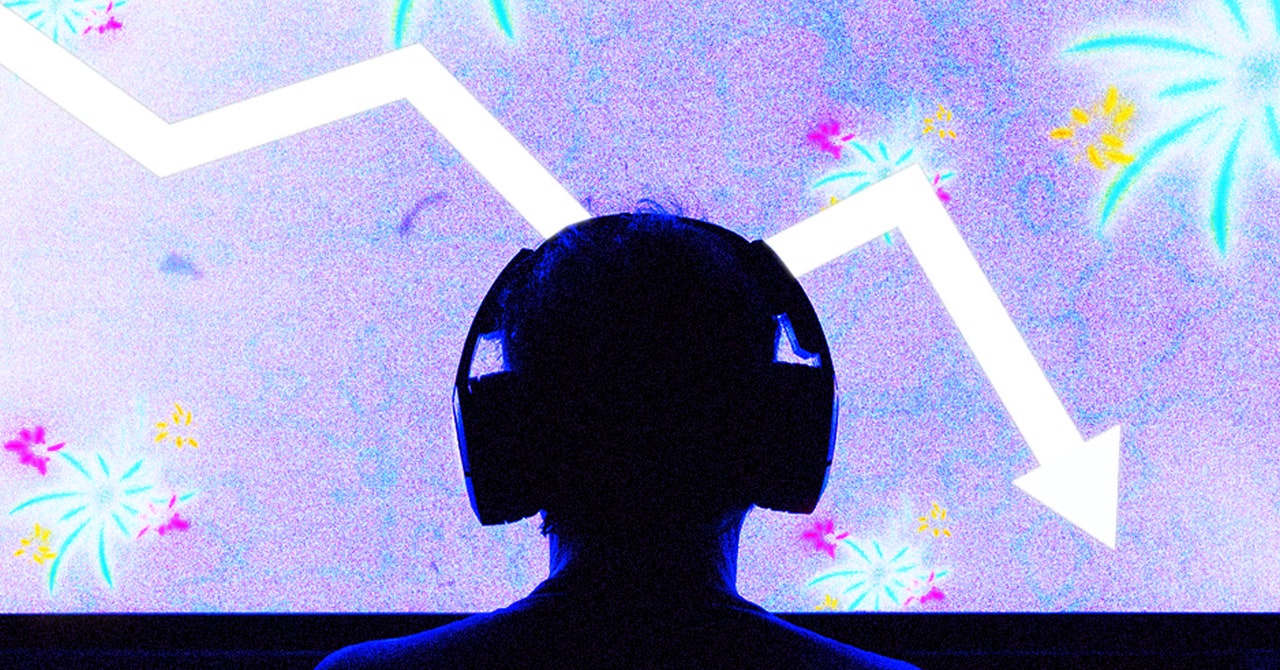For those involved in video game development, 2024 has been marked by severe challenges. At the Game Developers Conference in March, the rallying cry of "Survive till '25" was echoed as a way to maintain morale, while some resorted to screaming out their frustrations amidst record layoffs and online backlash against developers for baseless conspiracies.
Last year alone, more than 10,000 developers found themselves out of work, and a significant portion of game creators surveyed mentioned experiencing job loss. Although there were successes for labor movements in major firms, such as Activision Blizzard and collective actions against AI's threats to employment, 2024 brought further mass layoffs that exceeded the previous year's figures, with estimates suggesting a 40% increase in job losses compared to 2023.
The situation deeply affected the industry, leading to disappointing outcomes for high-profile games such as "Suicide Squad: Kill the Justice League." While several factors contributed to these failures, the narrative was often simplified by certain online factions, attributing poor performance to the game's diversity and inclusion efforts.
Despite a number of remarkable releases this year, like "Balatro," "Final Fantasy VII Rebirth," and "Black Myth: Wukong," their successes were overshadowed by the prevailing difficulties affecting the teams responsible for creating them. The wider narrative surrounding video games in 2024 is quite grim, with industry experts attributing the distress to an array of complexities including development costs, workforce dynamics, and consumer spending patterns.
Indie developers felt the strain even more acutely, as numerous small studios closed their doors this year. Securing funding became increasingly difficult, prompting developers to seek alternative financing strategies. Initiatives were launched by some, such as the creators of "Among Us," to support fellow developers in completing their projects. Unfortunately, these struggles were compounded by targeted harassment from groups opposed to diversity initiatives in gaming.
Even larger companies weren't spared from the downturn. Microsoft and Sony had their share of layoffs, with some developers losing jobs even after successful game releases, highlighting an uncertain future for the industry.
The morale among developers has plummeted. A poignant moment during the Summer Game Fest was when developer New Blood Interactive rented a billboard to pay tribute to their peers affected by layoffs, expressing both solidarity and frustration with the industry's financial pressures.
This year also marked the tenth anniversary of Gamergate, an online movement that has perpetuated harassment within the gaming community. Discussions online echoed sentiments from that era, with dissenting voices criticizing diverse representation in games. Harassment campaigns were revived, targeting various developers and organizations involved in promoting inclusive practices within the gaming industry.
As conversations about diversity continued, they often devolved into conspiratorial thinking, with some right-wing groups claiming that the presence of marginalized characters led to failure. Even upcoming titles faced backlash, condemning their focus on inclusivity before they were even released.
Simultaneously, developers experienced mounting pressure to remain neutral on contentious issues. Incidents following the launch of "Black Myth: Wukong" revealed attempts to stifle discussions on topics like Covid-19 and gender politics, suggesting a broader effort to enforce a narrative structure that could erode the very creativity gaming relies upon.
Looking ahead, there's general pessimism about the industry's future. While some hiring is occurring, it is insufficient to make up for the job losses, especially among indie studios. As 2024 ends, the industry presents a facade of normalcy, celebrating achievements at The Game Awards even as underlying issues persist.
Host Geoff Keighley acknowledged the industry's struggles during the ceremony, remarking on the significant layoffs that impact both games and the individuals who create them. The event celebrated new projects while hinting at the underlying tension affecting the sector.
Meanwhile, the potential role of AI looms large over the landscape, leaving many wondering how it will shape the future of game development and employment. The road to recovery remains uncertain, with many unanswered questions surrounding who will be able to contribute to the creation of new games moving forward.
Last year alone, more than 10,000 developers found themselves out of work, and a significant portion of game creators surveyed mentioned experiencing job loss. Although there were successes for labor movements in major firms, such as Activision Blizzard and collective actions against AI's threats to employment, 2024 brought further mass layoffs that exceeded the previous year's figures, with estimates suggesting a 40% increase in job losses compared to 2023.
The situation deeply affected the industry, leading to disappointing outcomes for high-profile games such as "Suicide Squad: Kill the Justice League." While several factors contributed to these failures, the narrative was often simplified by certain online factions, attributing poor performance to the game's diversity and inclusion efforts.
Despite a number of remarkable releases this year, like "Balatro," "Final Fantasy VII Rebirth," and "Black Myth: Wukong," their successes were overshadowed by the prevailing difficulties affecting the teams responsible for creating them. The wider narrative surrounding video games in 2024 is quite grim, with industry experts attributing the distress to an array of complexities including development costs, workforce dynamics, and consumer spending patterns.
Indie developers felt the strain even more acutely, as numerous small studios closed their doors this year. Securing funding became increasingly difficult, prompting developers to seek alternative financing strategies. Initiatives were launched by some, such as the creators of "Among Us," to support fellow developers in completing their projects. Unfortunately, these struggles were compounded by targeted harassment from groups opposed to diversity initiatives in gaming.
Even larger companies weren't spared from the downturn. Microsoft and Sony had their share of layoffs, with some developers losing jobs even after successful game releases, highlighting an uncertain future for the industry.
The morale among developers has plummeted. A poignant moment during the Summer Game Fest was when developer New Blood Interactive rented a billboard to pay tribute to their peers affected by layoffs, expressing both solidarity and frustration with the industry's financial pressures.
This year also marked the tenth anniversary of Gamergate, an online movement that has perpetuated harassment within the gaming community. Discussions online echoed sentiments from that era, with dissenting voices criticizing diverse representation in games. Harassment campaigns were revived, targeting various developers and organizations involved in promoting inclusive practices within the gaming industry.
As conversations about diversity continued, they often devolved into conspiratorial thinking, with some right-wing groups claiming that the presence of marginalized characters led to failure. Even upcoming titles faced backlash, condemning their focus on inclusivity before they were even released.
Simultaneously, developers experienced mounting pressure to remain neutral on contentious issues. Incidents following the launch of "Black Myth: Wukong" revealed attempts to stifle discussions on topics like Covid-19 and gender politics, suggesting a broader effort to enforce a narrative structure that could erode the very creativity gaming relies upon.
Looking ahead, there's general pessimism about the industry's future. While some hiring is occurring, it is insufficient to make up for the job losses, especially among indie studios. As 2024 ends, the industry presents a facade of normalcy, celebrating achievements at The Game Awards even as underlying issues persist.
Host Geoff Keighley acknowledged the industry's struggles during the ceremony, remarking on the significant layoffs that impact both games and the individuals who create them. The event celebrated new projects while hinting at the underlying tension affecting the sector.
Meanwhile, the potential role of AI looms large over the landscape, leaving many wondering how it will shape the future of game development and employment. The road to recovery remains uncertain, with many unanswered questions surrounding who will be able to contribute to the creation of new games moving forward.
 News
News
 Games
Games
 Software
Software
 Music
Music
 Technology
Technology
 Hardware
Hardware
 eSports
eSports
 AI-Artificial Intelligence
AI-Artificial Intelligence
 Internet
Internet
